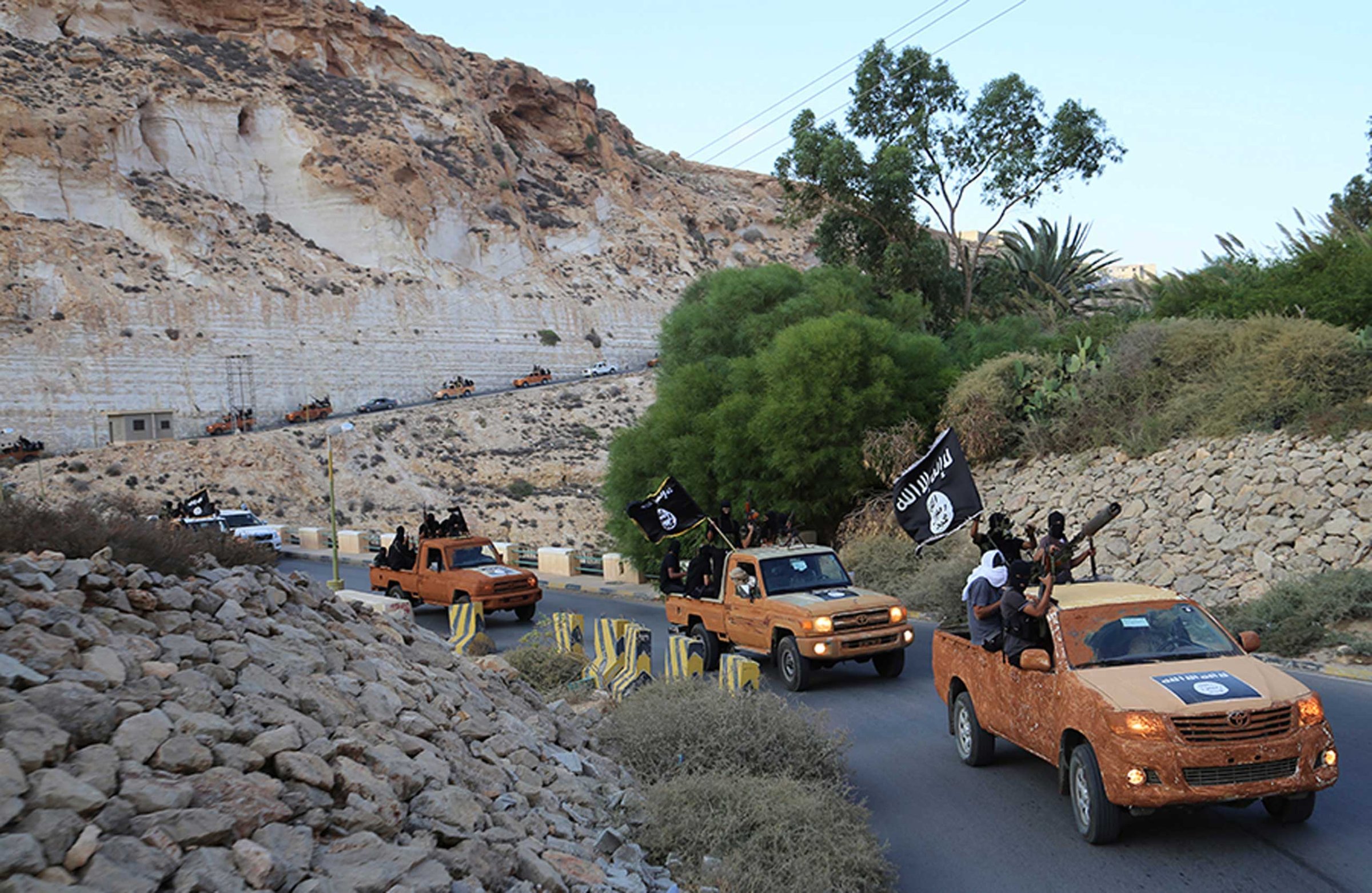
When the commander of U.S. armed forces in Africa confirmed the presence of what he described as training camps linked to the Islamic State of Iraq and Greater Syria (ISIS) in Libya this week, he threw a spotlight on a growing source of anxiety in the Middle East: namely the erosion of the Libyan state and its consequences for both Libyans and the wider region as militants fill the vacuum.
General David M. Rodriguez’s remarks followed the news earlier this year that a local militant group called the Islamic Youth Shura Council had declared its allegiance to ISIS’s self-proclaimed state in Iraq and Syria. The group operates in eastern Libya, which is where the American general said ISIS had “begun its efforts.”
When asked about the possibility of ISIS also moving into western Libya, Gen. Rodriguez said, “We’re continuing to watch that. But most of it is over in the east right now.” ISIS’s activities in eastern Libya, he added, were “mainly about people coming for training and logistics support right now.” “As for as a huge command-and-control network, I’ve not seen that yet.”
Although Gen. Rodriguez did not name the Shura Council, Issandr El Amrani, the head of the North African Project at the non-profit International Crisis Group, says he understood the remarks as a reference to the group. “That’s the only group we know of that has publicly made such an allegiance.”
Based in the eastern town of Derna, the group emerged as Libyan state institutions unravelled amid the ongoing conflict between the country’s elected government and Islamist militias, who have seized the capital Tripoli and proclaimed their own rival administration. More than three years after a NATO-backed uprising toppled the dictator Muammar Gaddafi, the country’s elected representatives have been forced to flee to the small port city of Tobruk.
With pro-government forces focusing on fighting the Islamist militias in Tripoli and the eastern city of Benghazi, much of the rest of the country has come under the control of a patchwork of other militias of various sizes and ideologies. In Derna, the Shura Council and other militants have been terrorizing the local population, carrying out at least three summary executions and ten public beatings in recent months, according to Human Rights Watch. In August, the Shura Council is reported to have overseen the public execution of an Egyptian man accused of murder, while more recently, eight men caught drinking alcohol were said to have been publicly flogged in a Derna square in late October.
“The real danger that the international community is concerned about is where does this lead over time?” says El Amrani. “How do places like Derna and the deep south look in five years time? Are these going to be hubs not just for Libyan radicals but for radicals from across the region?”
For now, though, the militants in towns like Derna operate on relatively small scale, according to El Amrani. “Generally speaking, this is people who have a few pickup trucks and guns on them and not much more than that, and there’s such a power vacuum that they’re able to do what they want sometimes,” he says.
There are, as a result, questions about the level of the Shura Council’s control over Derna, which was long a center of political resistance and virtually disregarded under the Gaddafi regime, with no representation in Tripoli. Some observers have also characterized the group’s pledge of allegiance to ISIS as little more than a bid to raise its profile.
But it’s existence serves to underline the growing chaos inside Libya. “It’s very divided on the ground,” adds El Amrani. “The local police force and state authority is so weak that they’re not really able to stop them from coming in and stop them from shooting people and holding executions.”
More Must-Reads From TIME
- The 100 Most Influential People of 2024
- The Revolution of Yulia Navalnaya
- 6 Compliments That Land Every Time
- What's the Deal With the Bitcoin Halving?
- If You're Dating Right Now , You're Brave: Column
- The AI That Could Heal a Divided Internet
- Fallout Is a Brilliant Model for the Future of Video Game Adaptations
- Want Weekly Recs on What to Watch, Read, and More? Sign Up for Worth Your Time
Contact us at letters@time.com